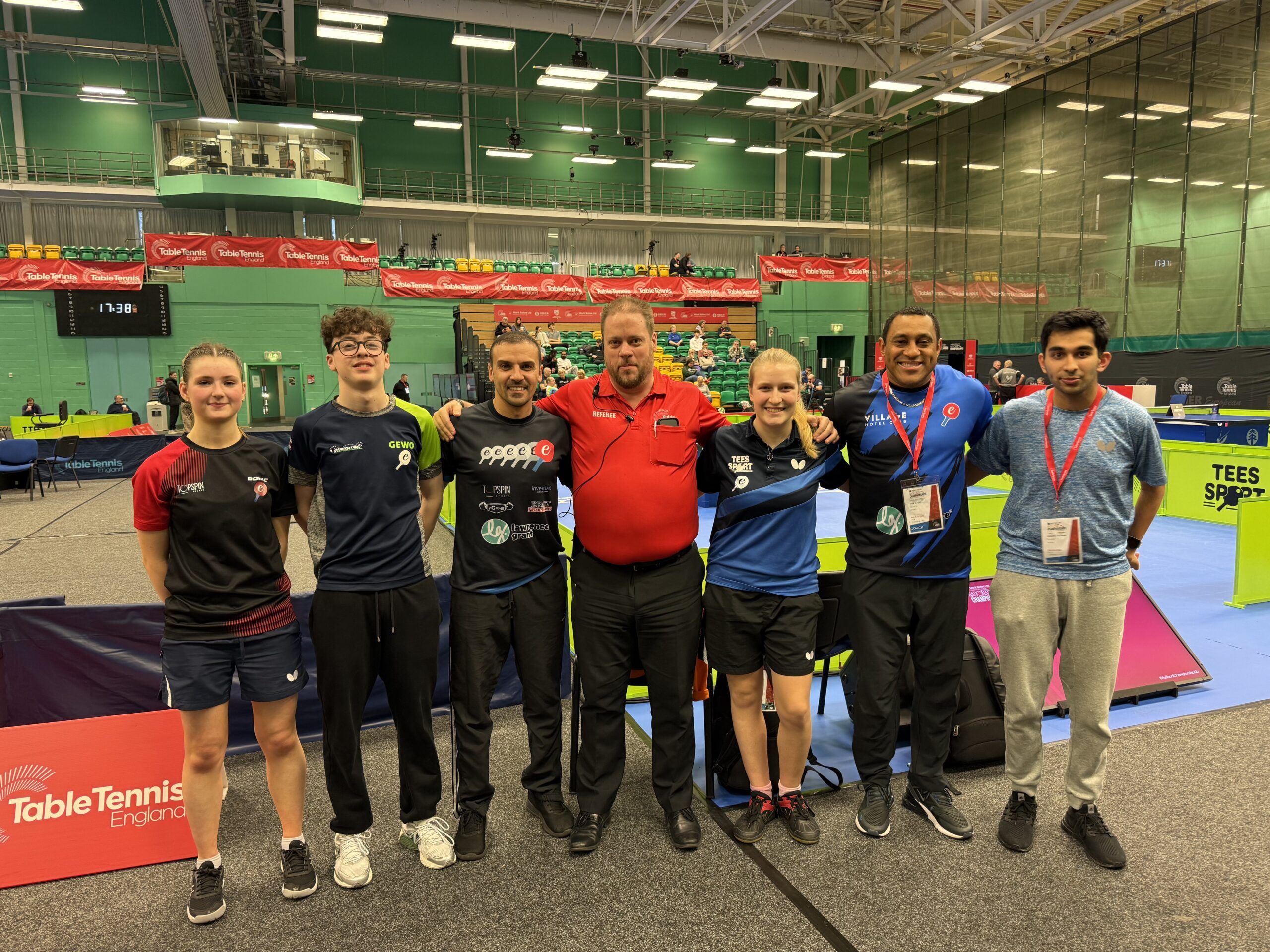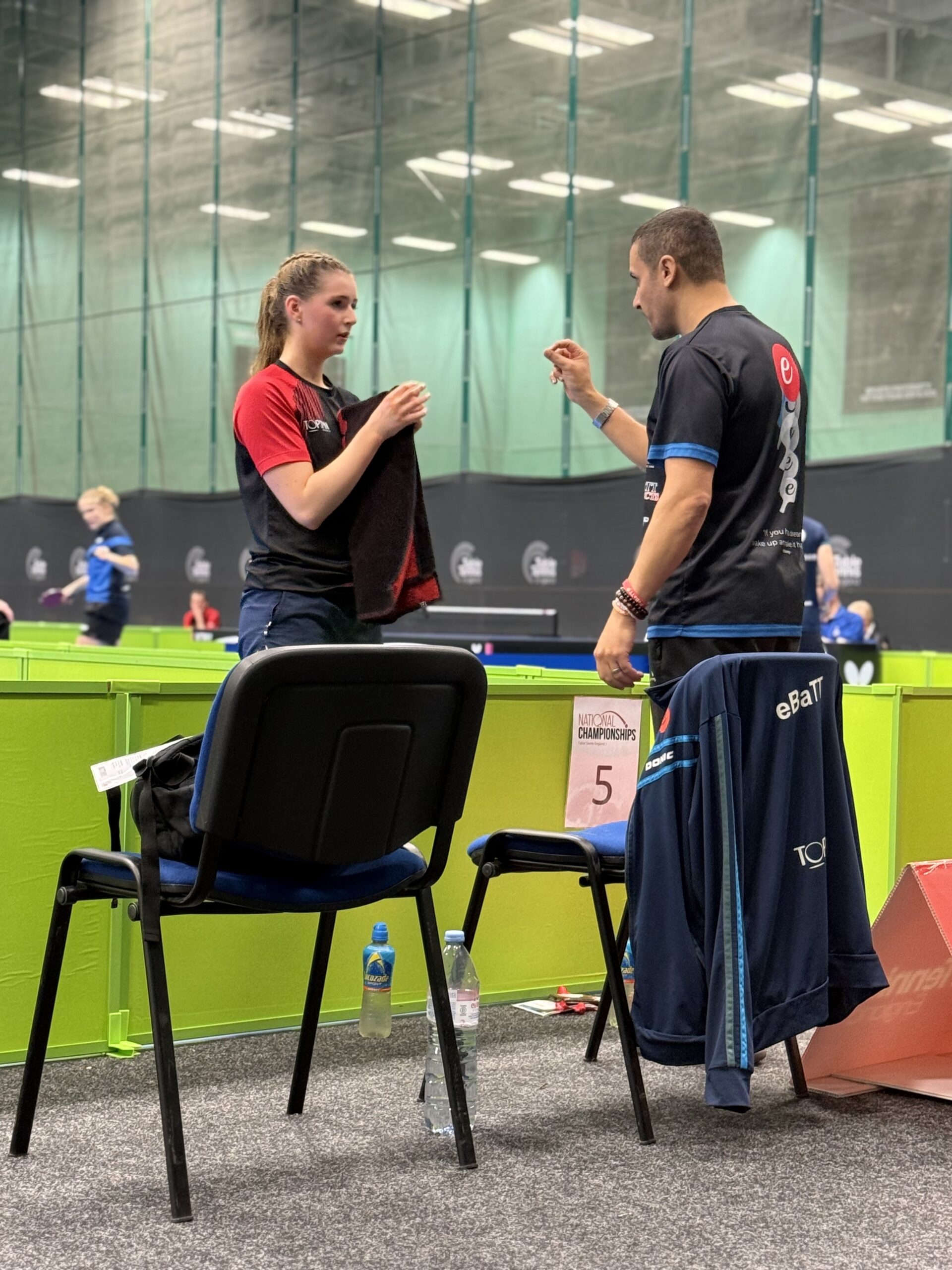Pre-Tournament Nerves:
As a junior, I rarely felt nervous during a match but I did get pre-competition adrenalin. I struggled to sleep the night before due to excitement and anxiety.
Match Nerves
Entering the senior circuit, I naturally developed a ‘thought process’ using tactical know how to win matches as opposed to playing on autopilot as a junior. This changed my whole nervous system, I could sleep the night before but during the match… I found myself extremely nervous. This included; sweaty hands, my heart beating furiously and my hand shaking prior to my no.1 weapon, my serve.
I was affected so badly that I ended up quitting competitions and resorted to a club or local league play only. Every couple of years I would attempt a competition ‘come back’ but the nerves remained strong.
One person or one thing can change everything
At 27 years of age, a world-class coaches/players crossed my path and began working with me at my table tennis club/academy. We trained one or two hours per week and after 3 months my level went up. I started to compete with him. FYI, his standard at the time was top 5 England men and he said, “Eli it’s time to make a real comeback”.
The comeback
I did just that… Beating top 10 England players and jumping up the rankings to around 20 England Men. So what did I do differently on this occasion?
How to handle your pre-competition nerves
1. Work on your strengths, preferably a day or two before any competition and this will naturally increase your inner confidence.
2. Avoid match play meaning, you can play but don’t keep an official score. I suggest either one or two days prior to any competition. Why? Because in a match there is a winner and a loser and if you’re the loser… Well, we all know how we feel after losing. So instead, play as if it is a real match with 2 serves each but do not play games. If you love keeping score, then you can do a 10-10 or 5-9 down challenge but not a full game.
3.Routine: Do your best not to change your routine, often people change a routine when they prepare for a tournament. In effect, competition is just another game but one that has been given a ‘Name and Value’ e.g. Local league finals, London open, National Championships, Olympics etc. all have a name and value.
Local level – In general, you’re competing for the sheer enjoyment and social factor. You may be playing to keeping fit and get out of the house?! therefore routine is not necessary.
National level: You are committed to the sport so you need to find what preparation works best for you and stick to it. A mistake many national level players make, is changing their routines for different events e.g. National championships they will put in more hours in the training hall (when in fact they should prepare physically more rather than table time), hence the lack of consistency in performance.
International: Depending on your level you will train for personal and specific targets. The higher ranked you are the more focused you are on specific competition targets e.g. World championships, Europeans, Olympics etc. Again the same principle applies, find a specific preparation that suits you. Remember we are all individuals, so don’t copy another top players preparation methods. Once you have a suitable preparation, stick to it religiously even at times of poor confidence.
How to avoid match nerves:
1. Play under pressurised situations: I use betting (‘personal method’ and not recommended), I also ask my friends or students to watch me play. I may add a video recording and this automatically puts me into a state of ‘competition mode and the match has “value”. I would add pressure by either telling myself or the crowd how important this match is. The importance of the match is irrelevant, its an exercise towards facing pressure by increasing regular tension.
When playing under these circumstances I would consciously analyse and be aware of my state of mind. At certain stages/situations, I would focus on the (scary nervous, pressurised moments) and then I would use various methods to calm myself. For example, I would tell myself “relax and enjoy”, or I would wiggle my body to loosen the tension. There is an infinite amount of things you can do to reduce your personal anxiety but you must find what helps you. The key is finding out the cause, often the cause is external and not internal which causes matchplay anxiety.
2. Positive body language: hold your body upright, use only positive feedback such as “come on” “yes” good serve” “play positive” again use what suits you but it must always be positive! Some players like to release negativity by showing poor body language and expressing their disappointment after losing a point (e.g. Liam Pitchford) that’s fine as long as you can switch into a positive mindset, straight away.
3. Lastly, I would move and self-talk by bouncing up and down, releasing negative tension and keeping my body in a positive state. The self-talk would be an override of any negative talk which creeps in at crucial moments.
What has changed?
I remember training with a friend most Friday nights for many years. He would beat me 9 out of 10 times in practice at the club. We had our annual club championship and I faced my sparring partner at the same venue. The hall was the same, the tables were the same and obviously, I was the same person! The only difference was the just the layout and the title ‘Competition and Value’ “ The club closed championship”.
I won 3-1 even though I was expected to lose and the same happened with many other players in the club.
Nothing really changed!! except for the mindset of each play
In reality, nothing has ever changed (from club to competition) but everything in your mind has changed. Once a title and value have been added you placed personal pressure. So change your mindset – Its just another table tennis match/game.
Remember no matter where you play or who you play, in reality we are all playing the same game and your opponent “is just another person with a bat in their hand” regardless of their TT achievements.
Written by Eli Baraty










